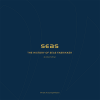Literature, Technology and Magical Thinking, 1880–1920
In this book Pamela Thurschwell examines the intersection of literary culture, the occult and new technology at the fin-de-siècle. Thurschwell argues that technologies began suffusing the public imagination from the mid-nineteenth century on: they seemed to support the claims of spiritualist mediums. Talking to the dead and talking on the phone both held out the promise of previously unimaginable contact between people: both seemed to involve ‘magical thinking’. Thurschwell looks at the ways in which psychical research, the scientific study of the occult, is reflected in the writings of such authors as Henry James, George du Maurier and Oscar Wilde, and in the foundations of psychoanalysis. This study offers new and provocative interpretations of fin-de-siècle literary and scientific culture in relation to psychoanalysis, queer theory and cultural history.
ContentsIntroduction; 1. Severing the wire: the Society for Psychical Research’s experiments in intimacy; 2. New forms of outrage: hypnotic aesthetes and the 1890s; 3. ‘That Imperial stomach is no seat for ladies’: James’s wars, James’s ghosts; 4. Henry James and Theodora Bosanquet: on the typewriter, in the cage, at the Ouija board; 5. Psychoanalysis’s dangerous proximities: telepathy, psychosis and the real event; Bibliography.
- Forlag: Cambridge University Press
- Utgivelsesår: 2001
- Kategori: Teori
- Lagerstatus: Ikke på lagerVarsle meg når denne kommer på lager
- Antall sider: 208
- ISBN: 9780521801683
- Innbinding: Innbundet













